-
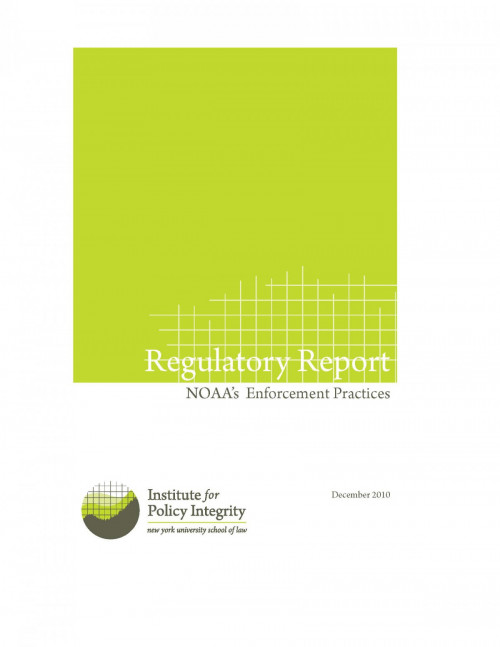
NOAA’s Enforcement Practices
This regulatory report recommends more economically effective fines that would increase the protection of our nation’s ocean life. It comes in response to a possible shift in NOAA’s policies that could risk a rise in over-fishing. The suggestion is properly calibrated fees combined with more rigorous enforcement that, together, will serve to efficiently deter harm to marine life.
-
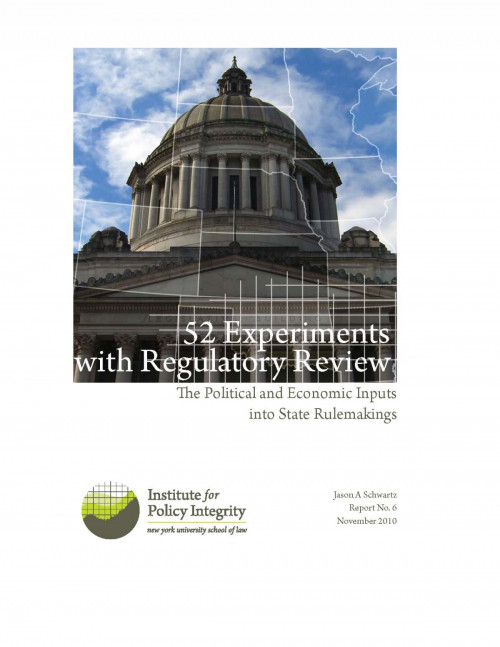
52 Experiments with Regulatory Review
The Political and Economic Inputs into State Rulemaking
After more than a year of research, surveys, and analysis, Policy Integrity is the first to compile the regulatory practices of all fifty states in one document. Comparing each set of laws and guidelines on paper to direct feedback from leaders on the ground, the report assigns states a grade based on the quality of their review process.
-
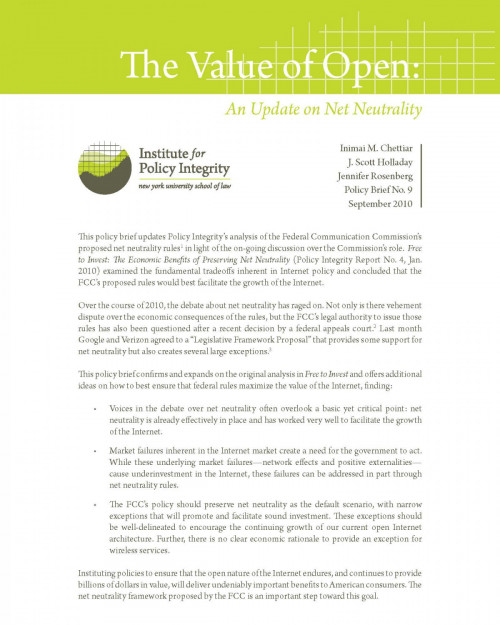
The Value of Open
An Update on Net Neutrality
An open Internet allows anyone with an idea and a domain name to add content to the web for all to use. It’s a system that most believe works very well, generating billions in economic benefits for the American public every year. This policy brief analyzes the economic uncertainties of weakening our current, open Internet and sees potential trouble ahead if it is not preserved.
-
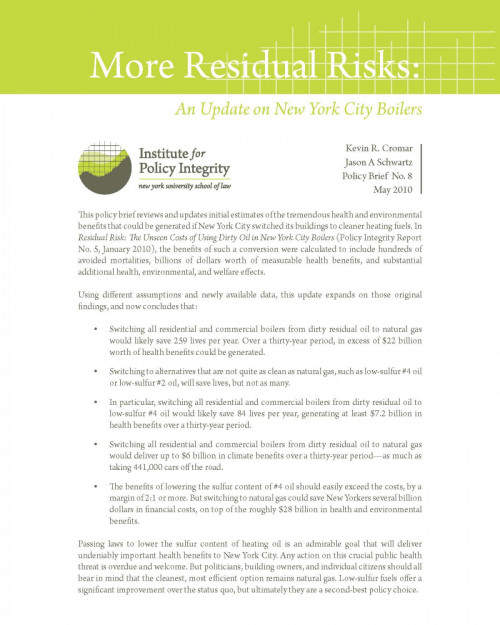
More Residual Risks
An Update on New York City Boilers
Up to 259 lives could be saved every year if certain large buildings in New York City stopped burning dirty heating oil. Using newly available data, a reworked analysis finds that residual oil has even greater consequences than estimated in an earlier report.
-
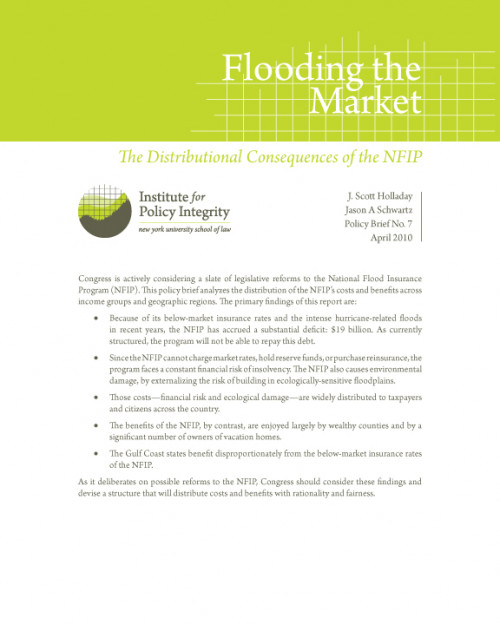
Flooding the Market
The Distributional Consequences of the NFIP
The government’s flood insurance program gives discounts to homeowners who build in flood-prone areas, often causing significant environmental damage. In this analysis, the Institute for Policy Integrity finds that this practice can benefit wealthy owners of expensive homes at a cost to the average taxpayer.
Viewing all publications in Reports
